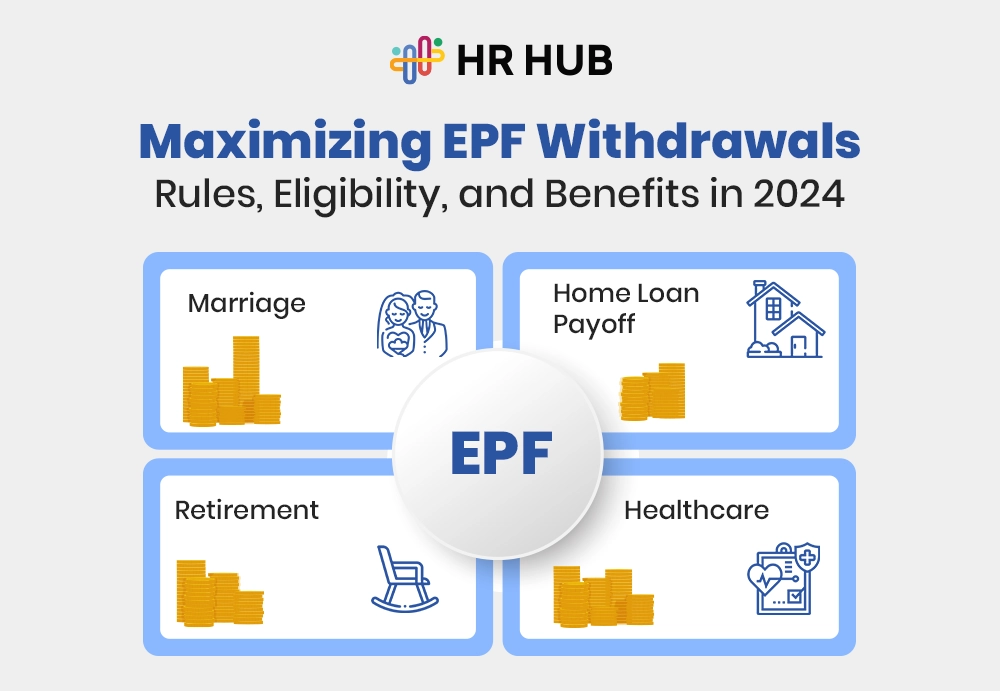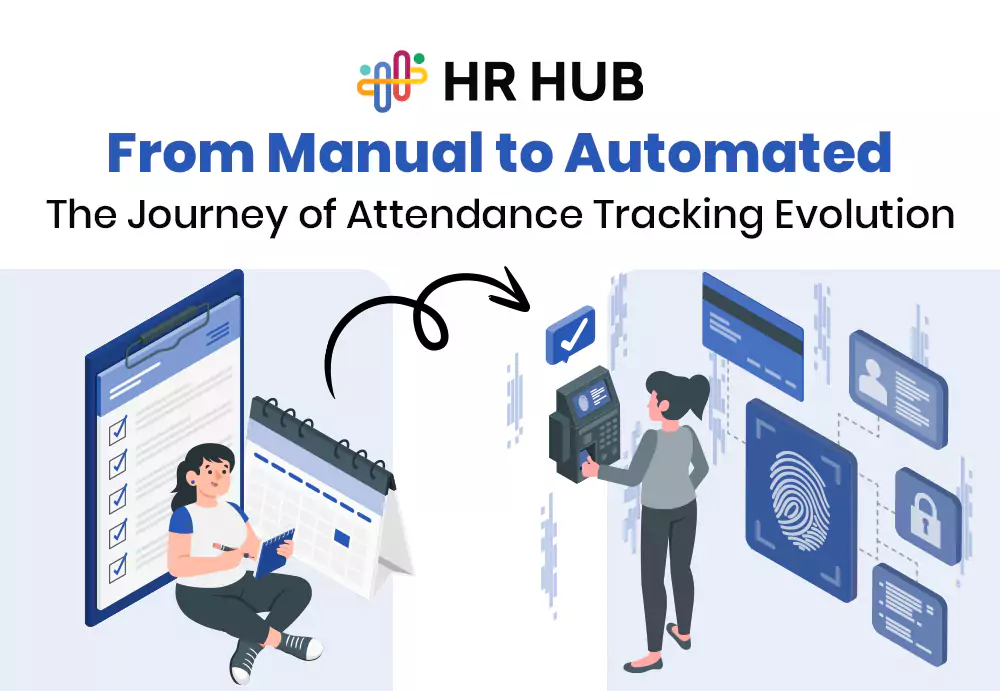For 2024, what has become trendy is making the workplace not just about processes and productivity but a personalized experience that speaks for itself to every employee. Personalization brings a game-changing approach to employee experience in businesses eyeing retention of their top talent.
This shift to a person-centered approach to human resource practices reflects the expectation engendered in staff of similar experiences to what they receive as consumers. This personalization fosters more engagement, raises productivity, and enhances overall satisfaction-thereby becoming one of the central components of employee life cycle management today.
Why Personalization Matters More Than Ever?
Personalization at work holds the key to high levels of engagement and satisfaction. It is essential to meet each employee's needs to build loyalty and performance by companies. This approach makes the business stand out in the competitive market through its supportive and engaging work environment.
- Exceeding Modern Employee Expectations: Due to the fierce competition in the job market today, the modern employee yearns for a workplace that will value them not just as workers but as people. Personalized workplace experiences give employees a huge feeling of importance and value, improving engagement and job satisfaction.
- Drive Engagement with a Personal Touch: Personalization plays a significant role in engaging employees. Studies have indicated that once employees feel the work environment has been personalized to meet their demands, they tend to be more effective and dedicated to the organization. Such personalized experiences promote work culture, which helps lower the turnover rate.
- Improved Staff Retention: Employees feel that their work environment has been personalized and will not leave the organization. Personalization develops employees' closeness to the organization. The emotional bonding reduces attrition and increases loyalty.
- Employee Well-being Increased: Companies can personalize to cater to individual well-being needs, providing their employees with well-being programs tailored according to their specific needs for work-life balance and mental health, areas growing in importance in the workforce.
- Aligning organizational goals to individual aspirations: Such firms can create a unified force of enthusiastic employees who work for them by understanding and aligning personal goals with organizational objectives, leading to higher fulfillment and company performance.
- Facilitating Diversity and Inclusion: Personalization creates an inclusive culture that diversifies needs and perceptions, making all staff feel accepted and valued.
Core Components of a Personalized Experience
By tailoring key aspects of the journey, an organization can foster a truly individualized experience for the employee. By focusing on personalized onboarding, learning, and recognition of employees, organizations can develop a work environment with which many are eager to start and remain long-term.
- Individualized Onboarding Journeys: Personalization must begin with customized onboarding journeys on day one. The key lies in knowing the specific needs of new employees; once that is known, designing onboarding processes that help in smoother transition and faster integration becomes possible.
- Personalized Learning and Career Development: Every employee has career goals and preferences. Providing the right learning pathways and development opportunities customizes employees' growth in ways relevant to them. This would, therefore, ensure that the workforce members are skilled and highly motivated and aligned with the organizational goals.
- Feedback and Incentives Relevant to All: Recognition for unique contributions is important. A better-instituted system of personalized recognition and feedback ensures that employees experience a morale boost with timely and relevant acknowledgment, encouraging continued excellence.
- Personalized Benefits and Rewards: If offered flexibly to meet the needs of every individual, those benefits and rewards can provide satisfaction and loyalty. Employees are in a position to choose from what is relevant to them, including health benefits and work-from-home options.
- Customized Workspaces: Offering a workspace environment that meets the needs or preferences of each individual through the in-office setting or, alternatively, telecommuting solutions enables employees to reach maximum productivity since their workspace could be tailored to suit individual needs.
- Adaptive Career Pathing: Allow the employee to tailor-make his/her career path in the firm in such a way that he will feel empowered and engaged that his personal and professional goals are congruent and aligned.
Examples of Top Leading and Global Companies Providing Personalized Employee Experience:
Apple
- Culture of collaboration: A focus on teamwork has translated into an overarching culture of collaboration at the company.
- Competitive benefits and compensation: The Apple company offers some awesome perks. Since 2015, Apple has offered all employees free stock shares, with grants from $1000 to $2000.
- Wellness in the workplace: It's not all about the financial perks. Apple's employees also enjoy plenty of wellness options, such as in-house fitness centers and sprawling nature walks right outside their offices.
Microsoft Corp
- Internal Communication Tool: Delivering communications internally at Microsoft with Microsoft Viva Amplify
- Daily Pulse: A series of pulse surveys that capture employees' feelings.
- Team-building Activities: The company arranges several team-building events and opportunities for colleagues to bond.
Alphabet Inc.
- Unique compensation and benefits: Google goes beyond competitive salaries. In 2006, the company became the first to introduce a transferable stock option program for employees.
- Staff empowerment and autonomy: The company's famous 20% creative time and 80% work program encourage employees to take autonomy and pride in their work.
- Work environment: Google is renowned for its impeccable work environment. In addition to fitness studios and unlimited meals, Google also offers employees maximum flexibility in their workplace.
Salesforce Inc.
- Paid volunteer time: Employees receive 56 hours of paid time in order to volunteer in their neighborhood.
- Focus on wellness and work-life balance: The company's Wellness Reimbursement Program offers staff $100 each month to use on any wellness activity they like, such as Yoga classes, nutrition therapy, and more.
Cisco systems
- Clear workplace standards: The company has promoted its Cisco Code of Business Conduct, recognizing that clarity and work standards are key drivers of employee engagement.
- Employee recognition: A formal Employee Recognition Initiative is another way the company promotes employee engagement.
- Employee feedback: To support its employee engagement initiatives, a pulse survey is an anonymous employee feedback tool that gathers employee feedback on everything from management to career development.
How HR Management Software Enhances Personalization for an Optimal User Experience?
While discussing personalization, it's essential to consider how modern HR systems embody these principles. For instance, platforms like HR HUB offer modular designs that allow for customization to fit specific organizational needs. These systems include:
- Empowering Self-Service Features: HR HUB provides an employee self-service portal for managing profiles and preferences, promoting autonomy and engagement.
- Dynamic Feedback Mechanisms: Integrated feedback tools facilitate personalized communication and development, ensuring employees receive the support they need to thrive.
- Customizable User Experience: The ability to customize the user interface according to individual preferences enhances usability and satisfaction, ensuring that employees interact with a system tailored to their needs.
- Personalized Communication Tools: HR HUB provides communication tools that allow for tailored messaging and interactions, ensuring that employees receive information that is relevant to their roles and interests.
- Analytics and Reporting: HR HUB offers robust analytics and reporting capabilities, enabling organizations to monitor and refine personalization strategies based on real-time data and insights using employee data management software.
These features illustrate how advanced HR solutions can enhance employee life cycle management in HR by offering personalized experiences that meet diverse employee needs.
Embracing Personalization for Success
Personalization within employee experience is more than a trend-it's a must-have for any business looking to make strides in 2024 and beyond.
The greatest reasons companies should embrace personalization revolve around its benefit to better employee life cycle management and increased engagement in creating a work environment to help keep the best talent on the team.
The future of work will be driven by the ability to deliver personalized experiences that resonate with each employee as organizations continue to evolve and innovate.






